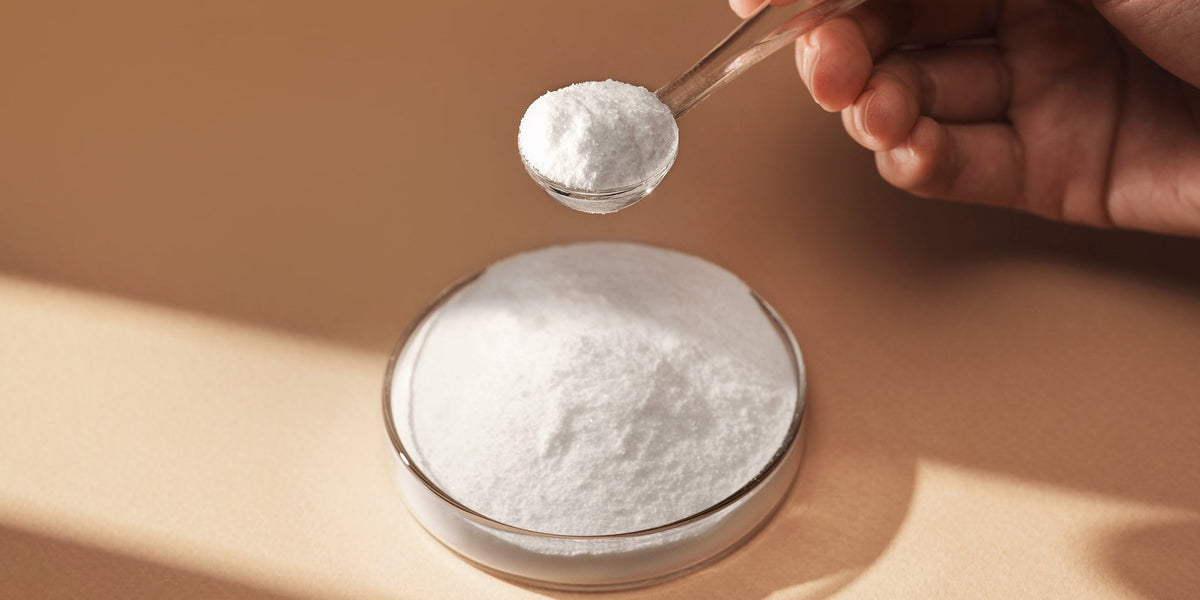
Why (Most) Vegans Should Be Taking Creatine
|
|
Creatine is only found in animal products, which means vegans who don’t add it to their daily diet through creatine supplementation could have low levels. Even for people who do eat meat, it can be hard to consume optimal levels of creatine to experience its full benefits.
This article will guide you through the various benefits of creatine, how low levels of creatine could be negatively affecting you, and why vegans and vegetarians typically turn to supplementation to ensure they get enough of it.
About 1-2 grams per day of creatine can come from your diet if you eat animal products such as red meat (beef, pork, veal), seafood, poultry (chicken, turkey), and animal milk (cow, goat, and sheep milk).
Your pancreas, liver, and kidneys can also make about 1 gram of creatine per day. About 95% of this creatine is used by your muscles during physical activity. The rest goes to your heart, brain, and other tissues.
Obviously, as a vegan, there will be no creatine consumed from animal products in your daily nutrition—you’re reliant on the creatine made by the body. As this is low, many people opt to take creatine supplements in order to reap the benefits of creatine.
Creatine is a compound consisting of three amino acids (glycine, arginine, and methionine). It is a natural source of energy that helps your muscles contract, especially while you’re exercising. Your body stores creatine as phosphocreatine primarily in your muscles, where it's used for energy.
Phosphocreatine aids the formation of adenosine triphosphate (ATP), the key molecule your cells use for energy and all basic life functions. During exercise, ATP is broken down to produce energy. The rate of ATP resynthesis limits your ability to continually perform at maximum intensity, as you use ATP faster than you reproduce it. Creatine supplements can increase your phosphocreatine stores, allowing you to produce more ATP energy to fuel your muscles during high-intensity exercise.
Creatine has also been shown to promote muscle hypertrophy (growth) and help improve recovery from physical activity by reducing muscle cell damage and inflammation following intense exercise.
Yet creatine’s benefits aren’t just physical. There’s a growing body of research showing the cognitive benefits of creatine supplementation.
This study showed creatine supplementation had a significant positive effect on working memory and intelligence. And if you’ve ever suffered impaired cognitive performance after a poor night’s sleep then regular creatine supplementation has been shown to help with that too. It has also been shown that creatine supplementation can help cognitive performance in older people.
Having low creatine levels can lead to low muscle mass and/or a lack of strength and difficulty in muscle growth/gaining muscle mass.
It can sometimes contribute to liver or kidney disease or a protein deficiency, which can increase the likelihood of stress fractures. Tiredness, difficulty concentrating, and a lack of appetite are other reported problems encountered.
The process of making creatine means it is safe for those following a vegan diet. It is made from two key ingredients: sodium sarcosinate and cyanamide.
Sodium sarcosinate is like salt but is slightly sweet in taste. Cyanamide is a white solid.
These two ingredients are heated and pressurized in a large reaction vessel, creating a liquid that is then cooled and set to become crystalline creatine. This is then purified by centrifuge, which spins out any impurities. The pure liquid is then vacuum-dried and milled into a fine powder, making it easier to dissolve in water.
Finally, at Momentous, it is third party-tested (NSF Certified for Sport) to ensure it meets the required standards for their certifications.
Momentous Creatine is made using Creapure®, the purest form of creatine monohydrate available and the gold standard of creatine.
While much of the creatine on the market is sourced from China, this is a single-source ingredient from Germany with no additives, sweeteners, or other ingredients. It has excellent solubility, zero taste and mixes easily with water, juice, or your go-to liquid. It is third-party tested and holds the NSF Certified for Sport certification.
Momentous also offers creatine in two other formats: 15-Travel Packs and Momentous Creatine Chews.
Each chew delivers 1 gram of pure Creapure® creatine monohydrate—the most trusted, rigorously tested form on the market—backed by 30+ years of research and NSF for Sport® certification for unmatched purity, potency, and safety.
Designed for everyday performance and convenience, Momentous reimagined creatine in a portable, lemon-lime chew that makes daily use effortless—no shaker, no mixing, no compromise.
No, plant-based foods do not contain creatine, but some can provide the amino acids needed to make creatine, such as tempeh, tofu, and edamame.
It is typically advised to take creatine either pre- or post-workout, with some evidence suggesting the efficacy of creatine supplementation is greatest post-workout.
Creatine supplementation is widely considered safe, but reported side effects include gastrointestinal issues, bloating, weight gain, and dehydration.
A loading phase isn’t necessary unless you want to experience the benefits of creatine much faster, which some power or strength athletes might wish to. Suggested examples of loading phases include taking 20-25 grams of creatine a day over four to five doses for five to seven days and then dropping to the regular maintenance dose of 3-5 grams per day. For most people, the regular maintenance dose of 5 grams per day is sufficient.
